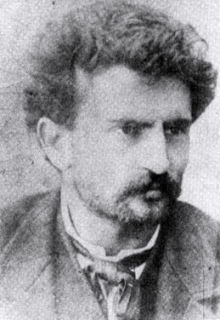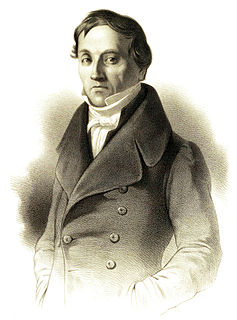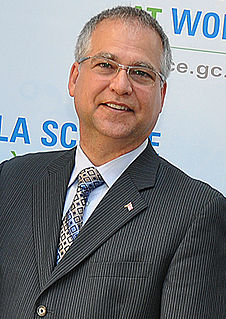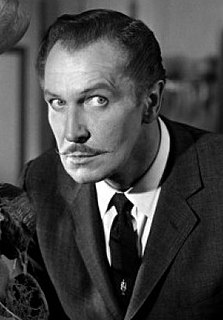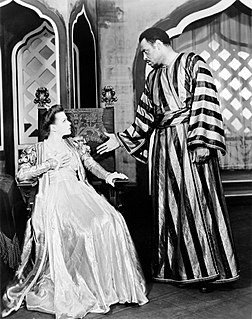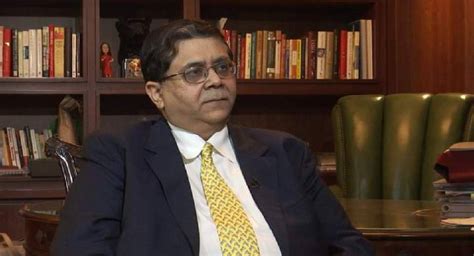Top 480 Thinkers Quotes & Sayings - Page 8
Explore popular Thinkers quotes.
Last updated on April 15, 2025.
Anarchy is a word that comes from the Greek, and signifies, strictly speaking, "without government": the state of a people without any constituted authority. Before such an organization had begun to be considered possible and desirable by a whole class of thinkers, so as to be taken as the aim of a movement (which has now become one of the most important factors in modern social warfare), the word "anarchy" was used universally in the sense of disorder and confusion, and it is still adopted in that sense by the ignorant and by adversaries interested in distorting the truth.
I believe that the time given to refutation in philosophy is usually time lost. Of the many attacks directed by many thinkers against each other, what now remains? Nothing, or assuredly very little. That which counts and endures is the modicum of positive truth which each contributes. The true statement is, of itself, able to displace the erroneous idea, and becomes, without our having taken the trouble of refuting anyone, the best of refutations.
I want to take my American friends back to the end of World War II, when the Universal Declaration of Human Rights was formulated. A group of thinkers met to come up with ways and means to prevent yet another war. Mrs. Eleanor Roosevelt played a crucial role in assembling this group of people. And that is why the name of the United States is synonymous with the cause of human rights around the world.
Accordingly, France Had Voltaire, and his school of negative thinkers, and England (or rather Scotland) had the profoundest negative thinker on record, David Hume: a man, the peculiarities of whose mind qualified him to detect failure of proof, and want of logical consistency, at a depth which French skeptics, with their comparatively feeble powers of analysis and abstractions stop far short of, and which German subtlety alone could thoroughly appreciate, or hope to rival.
The scientists from Franklin to Morse were clear thinkers and did not produce erroneous theories. The scientists of today think deeply instead of clearly. One must be sane to think clearly, but one can think deeply and be quite insane. Today's scientists have substituted mathematics for experiments, and they wander off through equation after equation, and eventually build a structure which has no relation to reality.
Leonardo da Vinci did not take received wisdom - whether from ancient classical thinkers or medieval scholars or from the Bible - without questioning it. And this was the beginning of the scientific method. This is another lesson for our time: that when we have evidence that contradicts a certain belief, we should be willing to change it. I think this made Leonardo, in some ways, a person who better understood the beauty of God's creation than a person who just takes all received wisdom from the Bible on faith.
I think many thinkers and activists, even in the Islamist parties like the Muslim Brotherhood, and the people who left the Muslim Brotherhood to follow Abou el-Fatouh, these people do have an understanding that the relationship between religion and the state must be re-thought and re-assessed. They're not going to use the concept of secularism in any straightforward way, because the concept of secularism is still far too loaded in that part of the world.
Yet as I cast my eye over the whole course of science I behold instances of false science, even more pretentious and popular than that of Einstein gradually fading into ineptitude under the searchlight; and I have no doubt that there will arise a new generation who will look with a wonder and amazement, deeper than now accompany Einstein, at our galaxy of thinkers, men of science, popular critics, authoritative professors and witty dramatists, who have been satisfied to waive their common sense in view of Einstein's absurdities.
Leonardo da Vinci, one of the greatest creative thinkers of all time, strongly recommended the habit of meditation in the dark. He wrote: "For I have found in my own experience that it is of no small benefit, when you lie in bed in the dark, to recall in imagination, one after another, the outlines of the form you have been studying." He often awoke to find his problems solved. Da Vinci would often stand silent and motionless before a painting for hours, without using his brush, as though waiting for spiritual guidance.
Mr. Bush has squandered the hard-built paternity of 40 years. But so has the party, and so have its leaders. If they had pushed away for serious reasons, they could have separated the party's fortunes from the president's. This would have left a painfully broken party, but they wouldn't be left with a ruined brand,- as they all say, speaking the language of marketing. And they speak that language because they are marketers, not thinkers. Not serious about policy. Not serious about ideas. And not serious about leadership, only followership.
Deep thinkers who look everywhere for the mysterious causes of poverty, ignorance, crime and war need look no further than their own mirrors. We are all born into this world poor and ignorant, and with thoroughly selfish and barbaric impulses. Those of us who turn out any other way do so largely through the efforts of others, who civilized us before we got big enough to do too much damage to the world or ourselves.
In America, we hurry-which is well; but when the day's work is done, we go on thinking of losses and gains, we plan for the morrow, we even carry our business cares to bed with us...we burn up our energies with these excitements, and either die early or drop into a lean and mean old age at a time of life which they call a man's prime in Europe...What a robust people, what a nation of thinkers we might be, if we would only lay ourselves on the shelf occasionally and renew our edges!
The life of a thinking man will probably be divided into two parts -- the first in which he desires to exterminate modern thinkers, and the second in which he desires to watch them exterminating each other. ... Suppose, for instance, there is an old story and a new skeptic who is skeptical of the story. We have only to wait a little while for a yet newer skeptic who is skeptical of the skeptic. He will probably find the old notion actually a help in his new notion. This process is an abstract truth applying to anything, apart from agreement or disagreement.
(Five) thinkers since Galileo, each informing his successor of what discoveries his own lifetime had seen achieved, might have passed the torch of science into our hands as we sit here in this room. Indeed, for the matter of that, an audience much smaller than the present one, an audience of some 5 or 6 score people, if each person in it could speak for his own generation, would carry us away to the black unknown of the human species, to days without a document or monument to tell their tale.
I think it's a real shame so many schools have taken out the hands-on classes. Art, music, auto mechanics, cooking, sewing, these are all things that can turn into jobs. You know, wood shop, steel shop, welding. These are all things that can turn into great careers, get kids interested. Things they can do with other students. Other things for our word thinkers: journalism clubs, drama clubs.
His [Turgot's] first important literary and scholastic effort was a treatise On the Existence of God. Few fragments of it remain, but we are helped to understand him when we learn that he asserted, and to the end of his life maintained, his belief in an Almighty Creator and Upholder of the Universe. It did, indeed, at a later period suit the purposes of his enemies, exasperated by his tolerant spirit and his reforming plans, to proclaim him an atheist; but that sort of charge has been the commonest of missiles against troublesome thinkers in all times.
As to how I would guide someone who is confused about the idea of God, I would suggest that he or she begins identifying what one might called "philosophical friends," - people with whom one could seriously examine our thought about God through listening to each other, reading important and useful books together and trying to think for oneself while familiarizing oneself with the ideas of some of the world's great thinkers. Cultivate openness without gullibility and skepticism without cynicism.
"God", "immortality of the soul", "redemption", "beyond" - Without exception, concepts to which I have never devoted any attention, or time; not even as a child. Perhaps I have never been childlike enough for them?
I do not by any means know atheism as a result; even less as an event: It is a matter of course with me, from instinct. I am too inquisitive, too questionable, too exuberant to stand for any gross answer. God is a gross answer, an indelicacy against us thinkers - at bottom merely a gross prohibition for us: you shall not think!
We forget that we create the situations, then we give our power away by blaming the other person for our frustration. No person, no place, and no thing has any power over us, for “we” are the only thinkers in our mind. We create our experiences, our reality, and everyone in it. When we create peace and harmony and balance in our mind, we will find it in our lives.
Know thyself! This is the source of all wisdom, said the great thinkers of the past, and the sentence was written in golden letters on the temple of the gods. To know himself, Linnæus declared to be the essential indisputable distinction of man above all other creatures. I know, indeed, in study nothing more worthy of free and thoughtful man than the study of himself. For if we look for the purpose of our existence, we cannot possibly find it outside ourselves. We are here for our own sake.
Everyone has a right to be interested in himself, and I am confident that God wants us to be interested in ourselves first; that is, the first soul that anyone should bring to God should be his own soul. We cannot do very much for anyone else until we have first done something for ourselves. That is, it is pretty difficult to give someone else an education unless we have some education ourselves. It is pretty hard to get someone else to think unless we ourselves are thinkers.
There is a tendency among many shallow thinkers of our day to teach that every human act is a reflex, over which we do not exercise human control. They would rate a generous deed as no more praiseworthy than a wink, a crime as no more voluntary than a sneeze. . . Such a philosophy undercuts all human dignity. . . All of us have the power of choice in action at every moment of our lives.
Baroque civilization believed in two truths, which for a post-18th-century mindset are exclusive truths - we have to eliminate one to believe the other. They believed in the rational exploration of the universe, and they also believed that there was a hidden spiritual truth. Baroque thinkers were able to live the two at the same time. In any case, for me, it's necessary to live that way also.
The Occupy Wall Street collective is confused about what it wants but it wants it now! Some of the loonier demands from its independent thinkers: Striking all existing public and private debt from the books across the "entire planet"; elimination of all international borders; free college education; a guaranteed "living wage" for all regardless of employment; an end to free trade; trillions in additional spending for infrastructure and ecological restoration; and ending the fossil fuel economy.
Through books you will meet poets and novelists whose creations will fire your imagination. You will meet the great thinkers who will share with you their philosophies, their concepts of the world, of humanity and of creation. You will learn about events that have shaped our history, of deeds both noble and ignoble. All of this knowledge is yours for the taking… Your library is a storehouse for mind and spirit. Use it well.
The bourgeois thinkers of the eighteenth century thus turned Aristotle's formula on its head: satisfactions which the Greek philosopher had identified with leisure were now transposed to the sphere of work, while tasks lacking in any financial reward were drained of all significance and left to the haphazard attentions of decadent dilettantes. It now seemed as impossible that one could be happy and unproductive as it had once seemed unlikely that one could work and be human.
I think our literary tradition has to evolve, has to explore its form and its spirit through writers and thinkers, rather than let the lazy, easy traditional narrative - which is controlled by the publishing industry - roll all over the readers and dominate the market. I think our readers and cinemagoers have been trained to read and watch very mainstream stuff. It's like being given sleeping pills. It sends people to a non-reflective sleep state.
Our Government is fostering economic growth in Kitchener, Cambridge and all of the Waterloo Region by investing in our innovative businesses. Today's announcement is a great example of how we are helping high-potential companies bring great ideas to market faster. Helping our entrepreneurs and original thinkers export their products and services to the rest of the world creates jobs, growth and economic prosperity here at home.
The argument that the two parties should represent opposed ideals and policies, one, perhaps, of the Right and the other of the Left, is a foolish idea acceptable only to doctrinaire and academic thinkers. Instead, the two parties should be almost identical, so that the American people can throw the rascals out at any election without leading to any profound or extensive shifts in policy. Then it should be possible to replace it, every four years if necessary, by the other party, which will be none of these things but will still pursue, with new vigor, approximately the same basic policies.
Individual heterosexual women came to the movement from relationships where men were cruel, unkind, violent, unfaithful. Many of these men were radical thinkers who participated in movements for social justice, speaking out on behalf of the workers, the poor, speaking out on behalf of racial justice. However when it came to the issue of gender they were as sexist as their conservative cohorts.
This rationale, which justified the mixed constitution of Great Britain, might have made some sense in 1776, but by 1787 most American thinkers had come to believe that all parts of their balanced governments represented in one way or another the sovereign people. They had left the Aristotelian idea of mixed estates - monarchy, aristocracy, and democracy - way behind. [John] Adams had not, and his stubbornness on this point caused him no end of trouble.
The overriding need is "to develop a new Planetary Humanism" that will seek to preserve human rights and enhance human freedom and dignity and will emphasize our commitment "to humanity as a whole." The underlying ethical principle "is the need to respect the dignity and worth of all persons in the world community." Thinkers as diverse as Peter Singer and Hans Küng also emphasize the need for a new global ethic beyond nationalistic, racial, religious, and ethnic chauvinism.
We frequently hear how essential it is for someone to think "outside the box," but what actually determines one's facility for doing so? In other words, what skills make someone a creative thinker? Typically, creative thinkers can view issues from multiple perspectives, define problems in several different ways, and anticipate likely obstacles. Someone's aptitude for these skills determines how well he or she will perform as a creative thinker.
What we take ourselves to be doing when we think about what is the case or how we should act is something that cannot be reconciled with a reductive naturalism, for reasons distinct from those that entail the irreducibility of consciousness. It is not merely the subjectivity of thought but its capacity to transcend subjectivity and to discover what is objectively the case that presents a problem....Thought and reasoning are correct or incorrect in virtue of something independent of the thinker's beliefs, and even independent of the community of thinkers to which he belongs. (p. 71)
That was what stuck in the craws of all the good women of Deptford: Mrs Dempster had not been raped, as a decent woman would have been-no, she had yielded because a man wanted her. The subject was not one that could be freely discussed even among intimates, but it was understood without saying that if women began to yield for such reasons as that, marriage and society would not last long. Any man who spoke up for Mrs Dempster probably believed in Free Love. Certainly he associated sex with pleasure, and that put him in a class with filthy thinkers like Cece Athelstan.
I don't think there is ever a direct connection between the philosophical community and the wider populus. I'm very aware of this because I've been working on a book on ideas in global philosophy and you always find some kind of relation between the dominant philosophies in a culture and the folk philosophy but it's not a straight-down dissemination. It's partly bottom-up. Thinkers are the products of the cultures they grew-up in. They aspire to thinking purely objectively and universally, but they are often reflecting ways of thought that are embedded in a culture.
Competition has never been more threatening than it is now. Innovative thinkers challenge the status quo in their organizations. They are often viewed as "troublemakers." They threaten the defenders of the status quo. So competition within an organization can also be brutal. The most effective leaders overcome "the ideology of comfort and the tyranny of custom" by being change agents themselves. They encourage and reward innovative thinking. I have observed that people only resist changes imposed on them by other people.
Right at this moment, I only want silence. I believe that the end of life is silence in the love people have for you. I've actually been running through what people have said about the end. Religion says that the end is one thing, because it serves their purpose. But great thinkers alike haven't always agreed. Shakespeare knew how to say it better than anyone else. Hamlet says 'The rest is silence.' And when you think of the noises of everyday life, you realize how particularly desirable that is. Silence.
Each state of the human mind has some parable in the physical creation by which it is shadowed forth; nor is it only artists and poets, but even the most abstract thinkers that have drawn from this source. Lively activity we name fire; time is a stream that rolls on, sweeping all before it; eternity is a circle; a mystery is hid in midnight gloom, and truth dwells in the sun. Nay, I begin to believe that even the future destiny of the human race is prefigured in the dark oracular utterances of bodily creation.
Where the good begins.- Where the poor power of the eye can no longer see the evil impulse as such because it has become too subtle, man posits the realm of goodness; and the feeling that we have now entered the realm of goodness excites all those impulses which had been threatened and limited by the evil impulses, like the feeling of security, of comfort, of benevolence. Hence, the duller the eye, the more extensive the good. Hence the eternal cheerfulness of the common people and of children. Hence the gloominess and grief - akin to a bad conscience - of the great thinkers.
The last few decades have belonged to a certain kind of person with a certain kind of mind-computer programmers who could crank code, lawyers who could craft contracts, MBAs who could crunch numbers. But the keys to the kingdom are changing hands.The future belongs to a very different kind of person with a very different kind of mind-creators and empathizers, pattern recognizers and meaning makers.These people-artists, inventors, designers, storytellers, caregivers, consolers, big picture thinkers-will now reap society's richest rewards and share its greatest joys.
One man has discovered that by running there is no need to meditate, just by running meditation happens. He must be absolutely body oriented. Nobody has ever thought that by running meditation is possible - but I know, I used to love running myself. It happens. If you go on running, if you run fast, thinking stops, because thinking cannot possibly continue when you are running very fast. For thinking an easy chair is needed, that's why we call thinkers armchair philosophers; they sit and relax in a chair, the body completely relaxed, then the whole energy moves into the mind.
Thought is the creative power, or the impelling force which causes the creative power to act; thinking in a Certain Way will bring riches to you, but you must not rely upon thought alone, paying no attention to personal action. That is the rock upon which many otherwise scientific metaphysical thinkers meet shipwreck–the failure to connect thought with personal action.
Science will always raise philosophical questions like, is any scientific theory or model correct? How do we know? Are unobserved things real? etc. and it seems to me of great importance that these questions are not just left to scientists, but that there are thinkers who make it their business to think as clearly and slowly about these questions as it is possible to. Great scientists do not always make the best philosophers.
There is, fortunately, a minority composed of those who recognize early in their lives that the most beautiful and satisfying experiences open to humankind are not derived from the outside, but are bound up with the development of the individual's own feeling, thinking and acting. The genuine artists, investigators and thinkers have always been persons of this kind. However inconspicuously the life of these individuals runs its course, none the less the fruits of their endeavors are the most valuable contributions which one generation can make to its successors.
Since the time of the ancient Greeks a democracy has depended on its philosophers and creative artists. It can only flourish by continuous probing, prodding, and questioning of the social conditions under which man exists and tries to better himself. One of the first moves of a dictatorship is to stifle the artists and thinkers who have the ability to stir up dissent from any prescribed dogma which might enslave them. Because the artist can arouse the curiosity and conscience of his community, he becomes a threat to those who have taken power.
Our culture is making a big difference and, whether it's our curries or movies like "Slumdog Millionaire" or whether it's just the Bollywood numbers to which a lot of the world is rocking, I think India's soft power is going up. And we are contributing a lot of entrepreneurs to the world as well whether it's people like Lakshmi Mittal or Indra Nooyi or thinkers like Amalti Singh. This is all happening because of there's something fundamentally right and thoughtful about Indian society.
A different conception of society, very different from that which now prevails, is in process of formation. Under the name of Anarchy, a new interpretation of the past and present life of society arises, giving at the same time a forecast as regards its future, both conceived in the same spirit as the above-mentioned interpretation in natural sciences. Anarchy, therefore, appears as a constituent part of the new philosophy, and that is why Anarchists come in contact, on so many points, with the greatest thinkers and poets of the present day.
We don't need no more rappers, we don't need no more basketball players, no more football players. We need more thinkers. We need more scientists. We need more managers. We need more mathematicians. We need more teachers. We need more people who care; you know what I'm saying? We need more women, mothers, fathers, we need more of that, we don't need any more entertainers
No words can express how much the world owes to sorrow. Most of the Psalms were born in the wilderness. Most of the Epistles were written in a prison. The greatest thoughts of the greatest thinkers have all passed through fire. The greatest poets have "learned in suffering what they taught in song." In bonds Bunyan lived the allegory that he afterwards wrote, and we may thank Bedford Jail for the Pilgrim's Progress. Take comfort, afflicted Christian! When God is about to make pre-eminent use of a person, He put them in the fire.
It would be wrong of me to suppose that just because I can form private mental images, that everyone can. As Francis Galton and William James long ago showed, a small proportion of adults-and some of these extremely intelligent-are unable to form such visual images. Berkeley's point is that it would be equally arrogant for these non-thinkers or non-image formers to claim that everyone is like them in the relevant respect. The temptation to pontificate in that way reveals a narrowness and unwillingness to see the world from another perspective.
People with eating disorders tend to be very diametrical thinkers – everything is the end of the world, everything rides on this one thing, and everyone tells you you're very dramatic, very intense, and they see it as an affectation, but it´s actually just how you think. It really seems to you that the sky will fall if you are not personally holding it up. On the one hand, this is sheer arrogance; on the other hand, this is a very real fear. And it isn't that you ignore the potential repercussions of your actions. You don't think there are any. Because you are not even there.
Here is the point about myself and my co-thinkers. Our belief is not a belief. Our principles are not a faith. We do not hold our convictions dogmatically. We believe with certainty that an ethical life can be lived without religion. And we know for a fact that the corollary holds true - that religion has caused innumerate people not just to conduct themselves no better than others, but to award themselves permission to behave in ways that would make a brothel-keeper or an ethnic cleanser raise an eyebrow.
Since my first discussions of ecological problems with Professor John Day around 1950 and since reading Konrad Lorenz's "King Solomon's Ring," I have become increasingly interested in the study of animals for what they might teach us about man, and the study of man as an animal. I have become increasingly disenchanted with what the thinkers of the so-called Age of Enlightenment tell us about the nature of man, and with what the formal religions and doctrinaire political theorists tell us about the same subject.
We use up words like 'spiritual' so fast in this culture. Twenty years ago spiritual had a distinct meaning. But now there's a lot of jack-off thinkers who just love to talk about the spiritual. And there is a lot of bogus - is bogosity a word? It should be - a lot of bogosity in these spiritual seekers. So you have to find another way to express it. I just call it 'how I fit'.
He will long be remembered as one of the great Christian thinkers of our century, with a childlike faith and a profound compassion toward others. It can rarely be said of an individual that his life touched many others and affected them for the better; it will be said of Francis Schaeffer that his life touched millions of souls and brought them to the truth of their creator.
Talk of world peace is heard today only among the white peoples, and not among the much more numerous coloured races. This is a perilous state of affairs. When individual thinkers and idealists talk of peace, as they have done since time immemorial, the effect is negligible. But when whole peoples become pacifistic it is a symptom of senility. Strong and unspent races are not pacifistic. To adopt such a position is to abandon the future, for the pacifist ideal is a terminal condition that is contrary to the basic facts of existence. As long as man continues to evolve, there will be wars.
The university is one of various funding structures by which people who want to do theoretical work stay alive, the same way that people go to grad school, not because they think it's going to change the world but because there's no patron system anymore, and they need some scaffolding of support while they're trying to figure out how they can proceed in their lives. I think that's utterly legit. A lot of our better theorists and thinkers, that's what the university is for them.
As thinkers, mankind has ever divided into two sects, Materialists and Idealists; the first class founding on experience, the second on consciousness; the first class beginning to think from the data of the senses, the second class perceive that the senses are not final and say, The senses give us representations of things, but what are the things themselves, they cannot tell. The materialist insists on facts, on history, on the force of circumstances and the animal wants of man; the idealists on the power of Thought and Will, on inspiration, on miracle, on individual culture.
